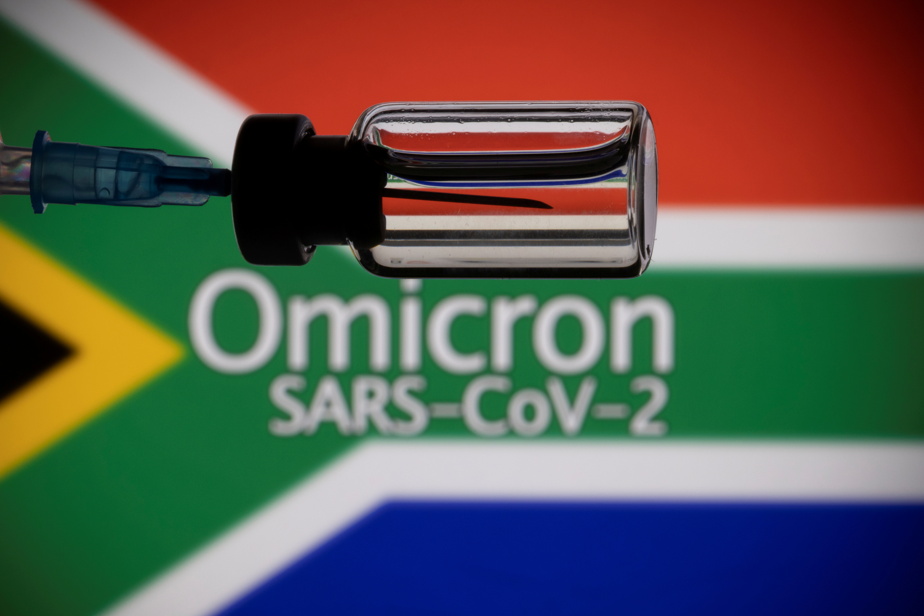(Johannesburg) The risk of contracting COVID-19 increases again with the Omicron variant, according to a study by South African scientists, providing the first indication that this variant is better able to bypass acquired immunity to infection than previous variants.
This work is based on the analysis of 35,670 cases of re-infection identified in the approximately 2.8 million individuals who tested positive for the virus in South Africa.
between 1He is On November 27, the risk of reinfection was observed to be three times higher compared to waves associated with the beta and delta variants.
“The Omicron variant is associated with a significant ability to evade immunity from prior infection,” concluded the study, which was made available Thursday on the medRxiv publication site, but has not yet been peer-verified.
“We do not have information on the vaccination status of individuals in our data, and therefore cannot draw any conclusions about Omicron’s ability to evade vaccine-induced immunity,” however, cautioned Juliette Pulliam of Stellenbosch University in South Africa and lead author of the study.
Last week, South Africa announced that it had discovered this new alternative, creating a global panic.
Because there are so many mutations, scientists have since sought to understand whether it is contagious or more resistant to immunity acquired thanks to vaccines or a previous infection.
Laboratory results are still pending, and thus this study provides valuable preliminary information.
Less severe symptoms
“We believe that previous infections do not protect against omicron,” Anne von Guttberg, an infectious disease specialist at South Africa’s National Institute of Infectious Diseases (NICD), said earlier.
According to the first observations, already infected people can be re-contaminated by Omicron, often with less severe symptoms, the scientist explained.
Vaccines, however, should still be effective against severe forms of the disease, she said.
The variant, which is so far present in at least 22 countries according to the World Health Organization, has been detected in four African countries: Ghana, Nigeria, Botswana and South Africa.
The number of official COVID-19 cases increased by 54% on the continent in the past seven days compared to the previous days, due to the accelerating rise in infections in South Africa, which is expected to exceed 10,000 cases within the next 24 hours. According to the World Health Organization in Africa.
Two weeks ago, South Africa was reporting about 300 cases per day. The country recorded 8,561 new cases on Wednesday, up from 4,373 the day before.
“We don’t know where the alternative comes from,” said WHO expert Ambrose Talisuna at this point. After announcing the unveiling of the new variant, named after Omicron, South Africa and its neighbors were punished with sudden travel bans in several countries.
The World Health Organization has repeatedly called for the lifting of these “unfair” restrictions that have no scientific justification.

“Extreme twitteraholic. Passionate travel nerd. Hardcore zombie trailblazer. Web fanatic. Evil bacon geek.”

